Poland Ambassador says Putin is trying to scare Ukraine neighbours amid conflict
A Russian attack on a military base just 20km from Ukraine’s border with Poland may have far-reaching ramifications for the whole region.
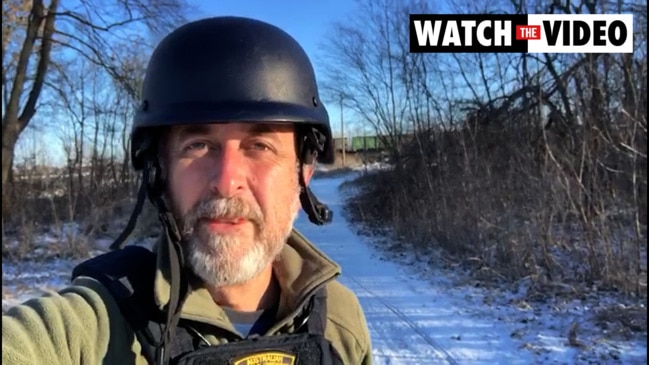
A Russian attack on a Ukrainian military base just 20km from Ukraine’s border with Poland not only underlines the potential for the conflict to escalate into a “full-scale war in the region” but also may be “psychological warfare”, according to Poland’s Ambassador to Australia.
Russian President Vladimir Putin ordered the missile attack on the training base in Yavoriv - which held overseas volunteers and was where NATO forces had previously trained Ukrainians - killing 35 and injuring 134.
And its proximity to the border has sparked talk over Russia’s potential to invade neighbouring Poland.
Poland’s Ambassador to Australia MichaÅ‚ KoÅ‚odziejski has said Mr Putin may be using the attack as a tactic to try to stop Poland from helping Ukraine, as it continues to provide refuge for Ukrainians fleeing their country amid the violence.
“Poland condemns the missile attack on the International Centre for Peacekeeping and Security in Yavoriv, approximately 20km from the Polish border, as much as we condemn every attack since the beginning of Russia’s invasion of Ukraine,” Mr KoÅ‚odziejski told news.com.au.
“We remain very concerned about the potential [of] Russia’s escalation of the war to any of the neighbouring countries, such as Georgia, Moldova or the three Baltic States: Lithuania, Latvia and Estonia. That also includes Poland.
“For the first time since the Second World War we are facing a real full-scale war in the region (caused by unprovoked and unjustified invasion by Russia). Thus, the concerns among Polish people are well-grounded.”
Mr KoÅ‚odziejski suggested there was perhaps also a second motive to the attack in Yavoriv – psychological warfare.
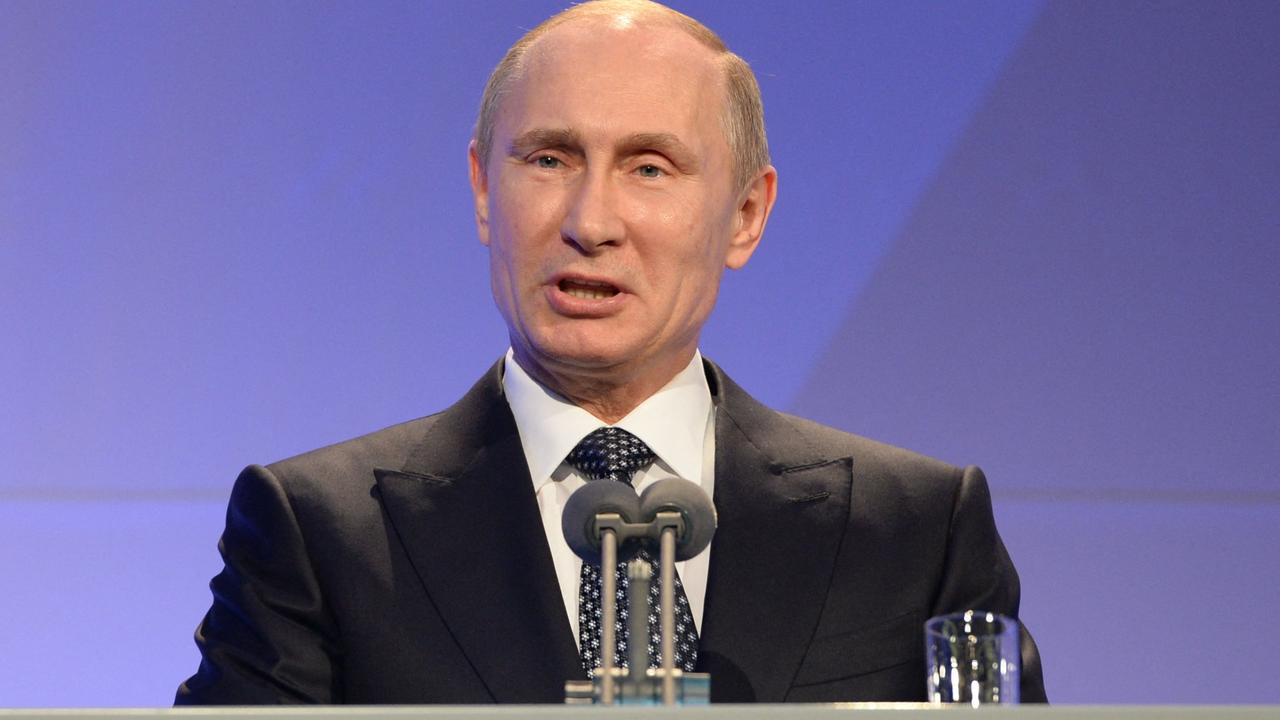
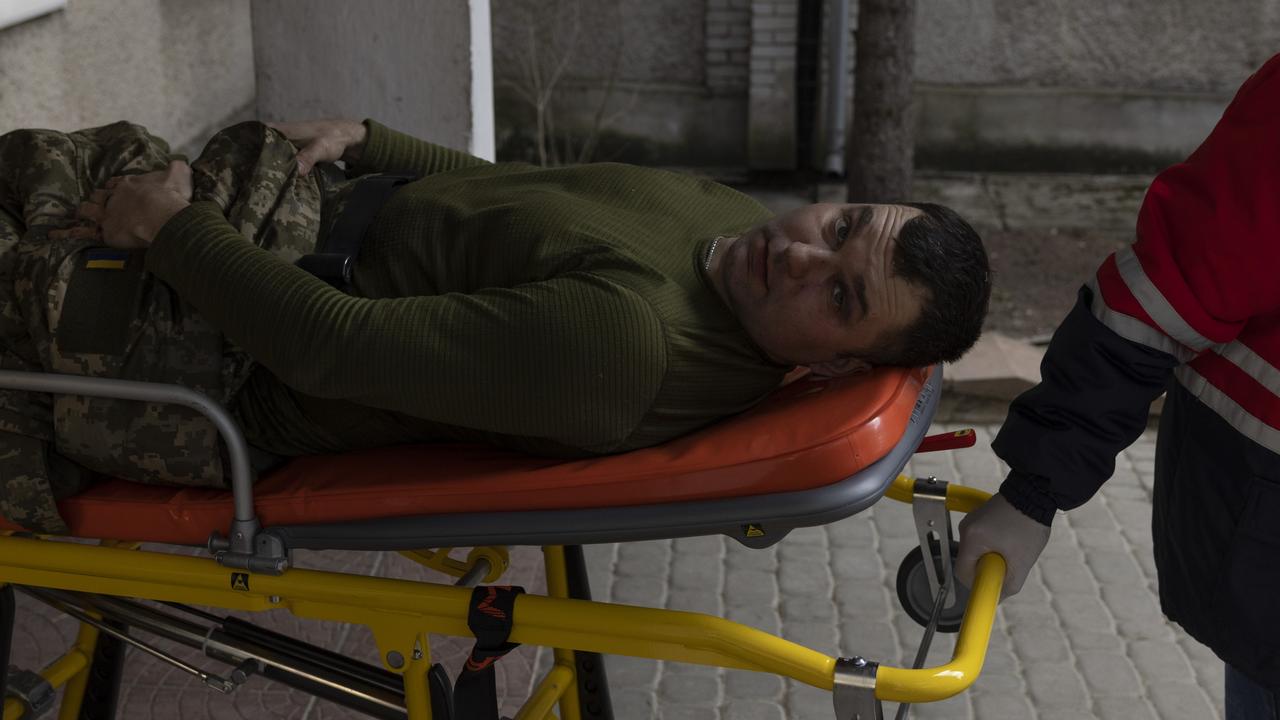
He said despite Russia’s gains in Ukraine, its military is struggling under the pressure to capture Kyiv and would struggle to invade another country at this point.
“I do not think that at this point of time Russia is ready to attack Poland or any other NATO member state,” Mr KoÅ‚odziejski said.
“It is clearly visible that Moscow struggles to achieve the objectives outlined in its pre-invasion plan and the Russian army is paying a high price as the Ukrainian Armed Forces continue to offer staunch resistance across the country.
“In this context, we rather consider the attack on Yavoriv as a part of Russia’s psychological warfare against our country aimed at scaring Polish people and discouraging us from providing support to Ukraine and Ukrainians.”
Urzekł mnie dziś mój irlandzki 🇮🇪 kolega, ambasador Tim Mawe.
— MichaÅ‚ KoÅ‚odziejski (@MiKolodziejski) March 17, 2022
W Australii z okazji Dnia św. Patryka tradycyjną zieleń zastąpiły w tym roku kolory... 🇺🇦! pic.twitter.com/GrW1CvtfEm
Mr KoÅ‚odziejski said Poland is also on the “front line” when it comes to other forms of attacks outside of missiles.
“We need to bear in mind that the Russian aggression against Ukraine is not only about tanks and gunshots, but also about using hybrid warfare, such as disinformation and cyber attacks, on Ukraine and its partners.
“And Poland is here on the first line.
“There are many Russian disinformation narratives hitting Poland or Polish-Ukrainian relations. Some of them are supposed to discredit Poland’s role as the closest partner and ‘advocate’ of Ukraine’s pro-Western, democratic aspirations within the EU and NATO. Others are aimed at creating new (and deepen existing) social divides within the Polish society and at antagonising Poles against Ukrainians.
“In order not to spread these narratives I will not quote them, however I can assure you that in all cases Russia’s attempts have failed. We also remain very resilient when it comes to repelling threats in the cyberspace.”
Key player in the war
As of Thursday afternoon, almost two million Ukrainians have entered Poland since the beginning of Russia’s invasion four weeks ago. That is more than half of all the refugees fleeing Ukraine.
“Poland accepts everyone escaping the war in Ukraine regardless of nationality, citizenship etc. and to allow that, the control procedures on the Polish-Ukrainian border have been significantly eased,” Mr KoÅ‚odziejski said.
“At the same time, our border guards continue verifying the identity of every person entering Poland, therefore we are able to provide the exact number of refugees from Ukraine.
“Since the very beginning of the war, we’ve been seeing an enormous mobilisation and great efforts from ordinary people, local governments and state institutions united in solidarity and sympathy with Ukraine and focused on one specific goal: To help those in need.”
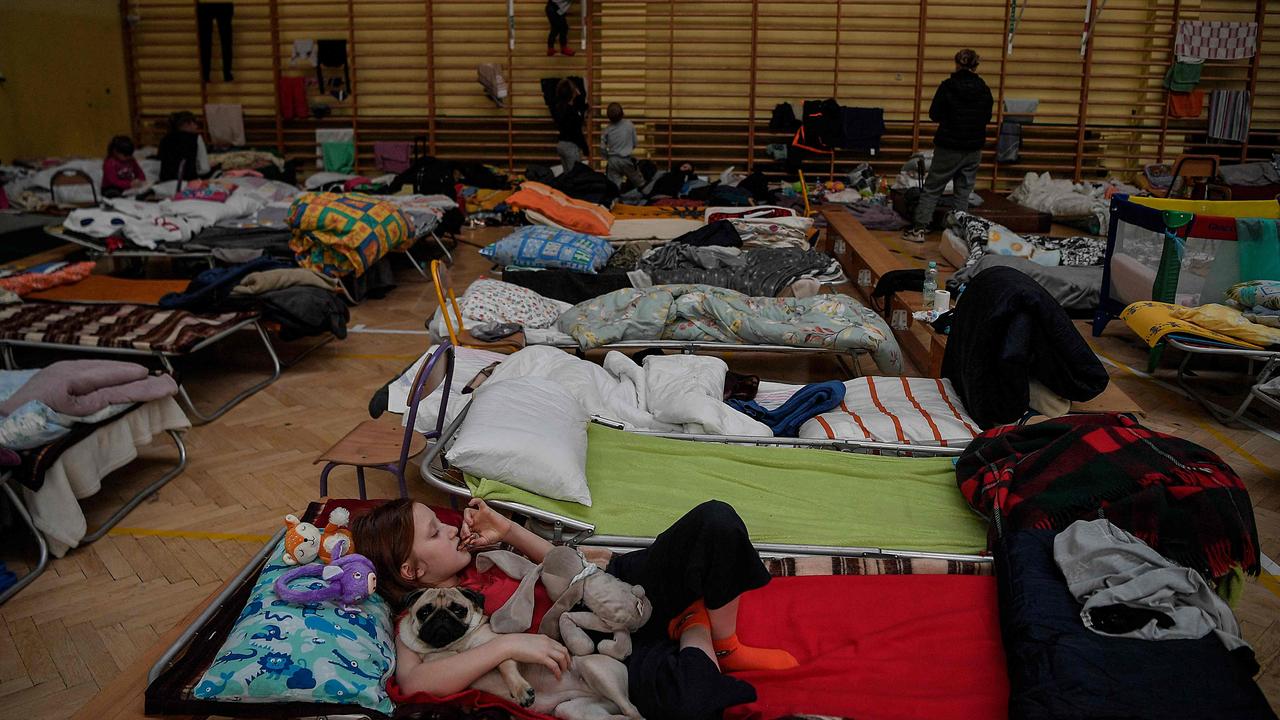
Poland has been a key player within Europe and beyond over recent weeks.
After Poland’s Prime Minister Mateusz Morawiecki joined leaders from the Czech Republic and Slovenia on a “perilous” train journey to Kyiv this week, Ukraine President Volodymyr Zelensky said: “With allies like this we will win this war.”
The visit made headlines across the world. It was described by CNN’s Jim Sciutto as a “truly remarkable stand given the current threat to Kyiv”.
It is here, in war-torn Kyiv, that history is being made. It is here, that freedom fights against the world of tyranny. It is here that the future of us all hangs in the balance. EU supports UA, which can count on the help of its friends - we brought this message to Kyiv today. pic.twitter.com/Us7k9xTq5f
— Mateusz Morawiecki (@MorawieckiM) March 15, 2022
Civilians unite
But it’s not just leaders making brave moves. Footage from the Polish border this week showed the fierce attempts made by a small group of people to block Russian forces.
Life has changed for those in Poland as it recovers from the Covid-19 pandemic and endures the influx of refugees. The majority are being hosted in Poles’ private houses. (This includes a member of Mr KoÅ‚odziejski’s family, who calls it a “moral obligation”.)
While the general situation in Poland “remains stable”, Mr KoÅ‚odziejski said: “We are starting to feel some growing pressure on, among others, our health care or education systems.”
Before the war, Poland had seen growing inflation brought on by the pandemic. Now with the influx of refugees, the situation has intensified.
Nevertheless, a law was passed this week by the Polish government making it easier for Ukrainians to receive a national identity number, to work and to access benefits, healthcare and education.
Tens of thousands of Ukrainian children have already registered at Polish schools and many more are expected to do so in the upcoming days.
Schools and other institutions are already organising Polish language courses for refugees to help them better accommodate and adjust to the new reality they find themselves in.
The law also provides a special one-off payment of 300 zloty (about $A100) per person to Ukrainian refugees and grants payments of 40 zloty ($A13) per day to people and entities in Poland that provide accommodation to Ukrainian refugees.
“There is no country in the world that could be prepared for such a wave of refugees in such a short time, therefore I am very proud of the response of the Polish society to this situation,” Mr KoÅ‚odziejski said.
“The assistance to refugees from Ukraine remains a number one task for the Polish government.”
‘Sanctions should remain our priority’
Mr Kołodziejski said sanctions against Russia should remain a priority for Western nations.
“The current situation, the ongoing war in Ukraine, affects Poland in many aspects and one of them is our economy.
“Maintaining and even strengthening economic sanctions on Russia should be our – the EU’s and the West’s – priority.
“It is crucial to cut off totally Russia’s war machine from its revenues coming from export of country’s natural resources (mainly crude oil, natural gas and coal),” he said.
“We know that the sanctions are already hitting Russia but they unavoidably are also affecting Poland and the global economy. This is the cost of our support for freedom and democracy, which we all should be ready to pay.
“For instance, Australia and Poland are experiencing similar problems when it comes to the increases in gas prices, but I think there is also a lot of understanding of the real causes of this situation.”
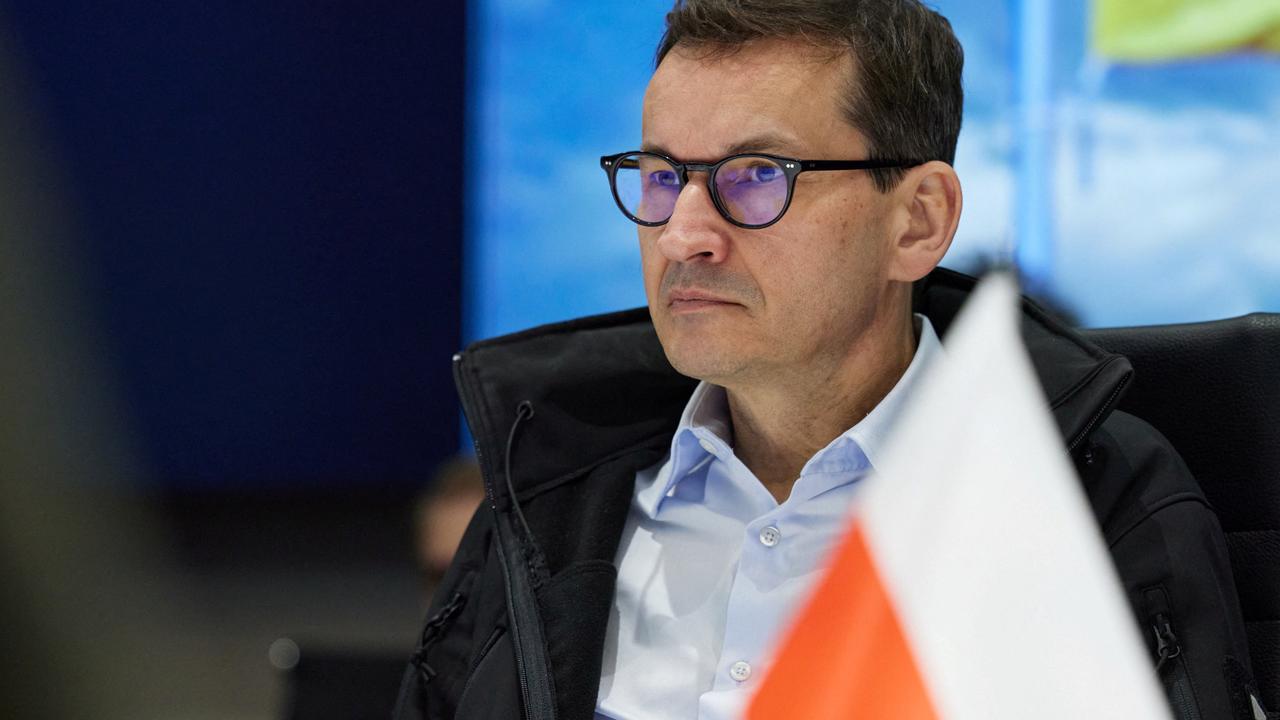
“We need and seek solutions and mechanisms that will reduce the migration pressure on Poland now and in the long-term perspective.
“Therefore, we ask our European partners, particularly from the West of the continent, to ease their procedures and requirements for those Ukrainian refugees who would like to go to these countries,” Mr KoÅ‚odziejski said.
“I have already commended the Australian government for the solidarity with Ukraine and concrete steps taken in terms of strong condemnation of Russia’s invasion, very prompt joining the international sanctions on Russia, as well as material assistance – military and humanitarian.
“We are afraid of the so-called ‘donor fatigue’, therefore, what the governments, including the Australian government, can actually do is to tirelessly continue providing assistance to Ukraine and Ukrainians and condemning Russia for its lawless actions.”






